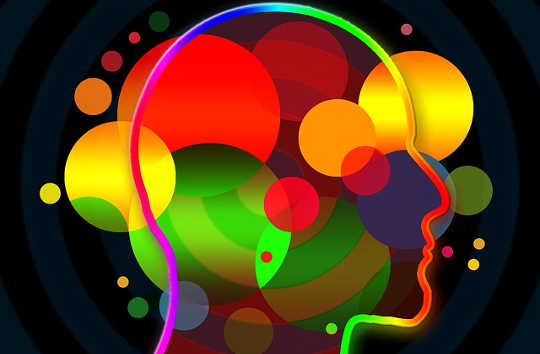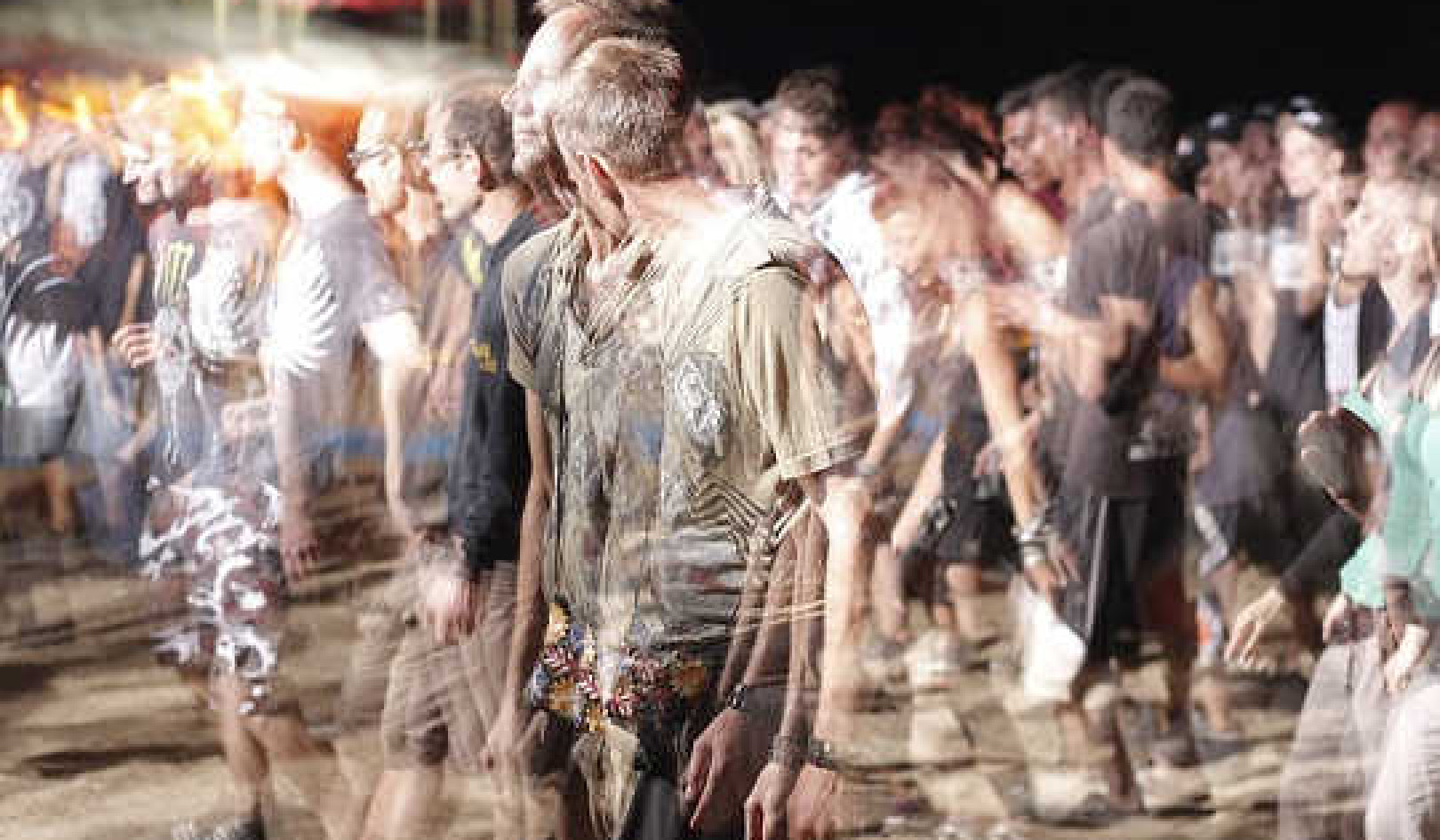
Image by Gerd Altmann
Empathy is everywhere. In many ways, empathy is the social glue that holds everybody together. Empathy is a social experience that involves feeling external emotional energy to the point of mirroring an emotion and taking it into one’s own experience. Sympathy, on the other hand, can be seen as “feeling for” the other, while empathy is “feeling as” the other. In daily life, an emotionally healthy person will experience both sympathy and empathy to varying degrees.
When a person has an empathic experience, they are transcending sympathy by actually absorbing or stepping into an emotional frequency. This empathic energy can come from another person, a group of people, an animal, a film or play, a story in the news, or even from emotional energy within an environment.
Everyone is empathic to one degree or another, and when a person has their empathetic receptors turned on “high,” it can often be an extremely overwhelming experience. This is why it is so important to understand the experience of empathy, and to learn techniques that help keep us socially balanced and emotionally healthy. Our own emotional wellness greatly determines how we react to life’s ups and downs.
Are You Empathic?
Although everyone experiences different types of empathic processing, those who are strongly empathetic have a number of things in common. If you identify with a number of these points, congratulate yourself on being a member of the world’s empathic family.
* Emotional absorption: The experience of absorbing surrounding emotions. This makes it challenging to differentiate between one’s own emotions and that of other people. Empaths must work especially hard at differentiating internal and external emotions on a daily basis.
* Understanding other perspectives: Highly empathic individuals have the ability to understand the reasons behind other people’s perspectives. Even if the empath themselves do not feel the same way as another person, it’s almost effortless to step into the viewpoint of someone else in order to see where they’re coming from. When approached with self-awareness, the empath can understand the other without necessarily “taking on” their perceptions as if they were one’s own. We can choose to understand and relate to others while still retaining our own identity and perspectives.
* Gullibility: Empaths are notoriously gullible. If a person is projecting a certain emotion, the empath is likely to feel that emotion and believe it to be real. This is the main reason why empathic individuals should not be friends with habitual liars or with those who do not share a similar set of ethics. Empaths can be persuadable to a fault, making them easy targets for those whose intentions are not so altruistic.
* Emotionally reading others: Empaths can easily read the emotions of others as well as animals. When standing on the outside of a discussion or debate, empaths hone in on the emotional energy of the parties observed. Whether consciously or otherwise, empaths have the ability to read body language and determine which emotions are “really” being communicated.
* Difficulty with indirect communication: Empaths are notoriously challenged when it comes to understanding subtle cues or “getting” what is being conveyed in indirect manners. Empaths will often become confused when others are trying to make us “get the hint” about one thing or another, which is why it is so difficult for us to perceive social boundaries unless they are explicitly expressed. Communication that is implied or subversive does not sit well with empaths, as we thrive on direct and honest communication.
* Sensitivity to stimuli: Physical sensations are heightened for empaths. While an average person might smell a rose, a highly empathic person might take the rose’s scent to an emotional place, discerning its subtle aroma and the memories it evokes. This sensitivity holds true for smell, taste, touch, hearing, and vision. No wonder we can’t stand excessively raucous noises and bright fluorescent lighting!
* An attraction to all things mystical: Empaths enjoy studying things that the majority of people may not even consider exploring. The cultures, religions, and diverse practices of the world’s inhabitants are fascinating and beautiful. We desire to step into the experiences of others because it reminds us that we are not as separate as it may sometimes appear. Even if someone else’s practice or culture seems intimidating to some, empaths thirst for the knowledge it can bestow. In this way, life is an experience of understanding and creating cultural and spiritual bonds. This is a reason why many empaths make excellent anthropologists, sociologists, and psychologists. By understanding others, we can better understand ourselves.
* A pleasant demeanor: Empaths are nice folks. Not always, but most of the time. We cannot stand discord, and are likely to be in a very frazzled state if we ourselves engage in conflict. As natural healers, empaths want what’s best for everyone around us. We hate to see others suffering, so we will often make life choices that help reduce suffering for those around us.
* Social anxiety: During highly social situations, our senses are alight. At these times, we are processing various levels of reality all at the same time. Even the smallest interaction can be seen as carrying psychological, emotional, and spiritual significance. We prefer to receive and process pieces of sensory input at a steady pace rather than receiving an overload of stimulus all at once. In social situations this can be tricky, and can lead to a pattern of social anxiety and even social phobia.
* A desire for solitude: Experienced empaths know the value of taking personal time when needed. It is not a good idea to isolate from society for extended periods of time, but it is essential to take space now and again. When we have some time to ourselves, we can relax our senses and calm our energies before once again engaging with the world. Even brief moments of solitude can realign the spirit with a greater sense of peace.
* Feelings of alienation: As we observe humanity’s mass delusions and social illnesses, a part of us wants to help heal the world, while the other part feels disconnected from civilization entirely. Understandably, we often feel that we are on the outside looking in on a world that doesn’t value compassion and unity. Regardless, we are here for a reason and should rejoice in the fact that we are different from the norm! It’s beautiful to be an alien.
Labels & Identity
For many sensitive souls, the term “empath” can be both affirming and empowering. We can gain a sense of confidence by knowing that we are different from the norm. Who wants to be normal, anyway?! We are here to help usher the world into a greater level of compassion, and as long as we can maintain that positivity toward others (and ourselves), we’re doing our jobs in the world. If using the term “empath” invokes a sense of confidence within you, why not use it with pride?
Just remember: being highly empathic is not a reason to avoid personal responsibility and accountability. Your empathic nature is not to blame for everything that goes wrong. Instead of viewing empathy in this light, try asking yourself how you can utilize your skills as an empath to heal your wounds and replace stress with love.
Compassionate Response
Empathy on its own is not necessarily based in love. Empathy is an emotional experience that is often followed with a response of compassion and kindness, but without this loving response, empathy falls short. For example, we might find ourselves becoming angry when we are around another person or people who are upset. This is most definitely an empathic experience, but unless it’s followed with a response of compassion, the empathy simply exists without much point or purpose.
When a person’s empathy is functioning at its highest potential, feelings of limitless love occur without hesitation. It feels good to be generous and help others in their lives. It’s empowering to make others feel valued and praised. It’s rewarding to create positive change.
Emotional Contagion
A scientific term that is valuable in understanding the empathic experience is emotional contagion. Emotions themselves can be socially contagious. When we “catch” an external emotion, we have taken it onboard in our own emotional bodies. At this point, it can sometimes be difficult to discern the emotion’s origin: is it mine or is it someone else’s, or is a combination of these two factors?
We often see emotional contagion demonstrated in children: if a child is having a grand ol’ time playing in the grass, their playmate is likely to feel the same elation. If one of them gets hurt and starts crying, it’s likely that the other child will begin crying too—they have “caught” their friend’s emotion without even thinking about it. Younger children also have far fewer social boundaries than adults, making it easy for them to quickly absorb emotional energy.
When we as adults “catch” an emotion, it can sometimes be just as challenging to shake it off. If we actively work on cultivating emotional self-awareness, we can more easily recognize an external emotion and see it for what it is. When we become aware of an emotion, we can choose to work with it in a constructive manner.
Society is a complicated beast, and for those that are highly empathic it can feel tempting to entirely disconnect from humanity when the going gets rough. Ironically, empaths can thrive very well socially when they are in a balanced state of mind, body, and spirit. Emotions are here to help guide us in life, not to hinder our development.
Everyday Empathic Techniques
Emotional challenges exist for empaths on a daily basis, even if they are relatively small occurrences. These challenges can become less and less intense over time if we dedicate ourselves to coming “back to center” and remembering that we don’t always have to be perfect. Life is a learning experience, so all we can do is keep trying our best everyday.
In order to promote healthy emotional functioning, empaths can do well to remember a few things when functioning in day-to-day society, including the following points.
* We don’t need to have all the answers: Sometimes it’s enough to listen to, to support, and to validate the emotions and perspectives of others. Sometimes the best thing for us to do is provide emotional support for those who are also learning valuable life lessons at their own pace.
* It’s good to be honest: Although empaths have a natural inclination to “save face” by not disappointing others, authentically living as empowered empaths requires that we be honest with ourselves and others. It is by understanding our own perspectives and beliefs that we can more easily define ourselves for who we are instead of absorbing whatever may be around us.
* Disapproval is okay sometimes: While it may be easier to take other people’s perspectives on board, we must first examine whether or not these beliefs hold true for us personally. Additionally, it’s okay if someone disagrees with us from time to time. We are not required to please everyone at all times. Some degree of social disapproval, discomfort, and disagreement is healthy.
* You are not a victim: It’s easy to get trapped in victim mentality. This is not a degrading term, and it is not a permanent state of being, but is a mental trap that we are all prone to falling into from time to time. We must gain the courage to transform sorrow (including feeling sorry for oneself) into constructive action. No matter the circumstances, we have the ability to process emotions, heal ourselves, protect ourselves, and make the conscious choice to humbly learn from our experiences. We can choose a path of accepting the past, cultivating forgiveness, and lifting ourselves back up when we fall.
* Put yourself first: If we wish to serve others and lift them up emotionally, it is essential that we prioritize our own health and wellness on every level. When we feel imbalanced, the empathic experience can work against us and create more social challenges than solutions. By spending periods of time alone (without totally disengaging!), we can assess and reassess our holistic health and seek to realign to a more healthy and functioning state of being.
* Cultivate gratitude: The fact that you are reading this at this very moment shows that you are both literate and have access to material items beyond mere food and shelter. Compared to much of the world, we live in luxury. Life is not without its problems, of course; some challenges in life can make us feel like we can’t handle the experience of living altogether. At the end of the day, we are very lucky and can create deeper healing in our life if we remember the gifts and opportunities that we have been given in life. We must maintain a perspective of the “bigger picture” in order to thrive both personally and socially as the highly sensitive souls that we are.
©2019 by Raven Digitalis. All Rights Reserved.
Published by Llewellyn Worldwide (www.llewellyn.com)
Article Source
The Everyday Empath: Achieve Energetic Balance in Your Life
by Raven Digitalis
 Enrich your knowledge of empathy and improve your empathic abilities with this captivating, easy-to-use guide. The Everyday Empath offers a well-rounded view of what it means to experience high levels of empathy in daily life. Featuring exercises, examples, and insights, it's an essential resource to have on your shelf.
Enrich your knowledge of empathy and improve your empathic abilities with this captivating, easy-to-use guide. The Everyday Empath offers a well-rounded view of what it means to experience high levels of empathy in daily life. Featuring exercises, examples, and insights, it's an essential resource to have on your shelf.
Click here for more info and/or to order this paperback book.
About the Author
 Raven Digitalis (Missoula, MT) is the author of The Everyday Empath, Esoteric Empathy, Shadow Magick Compendium, Planetary Spells & Rituals and Goth Craft (Llewellyn). He is the co-founder of a nonprofit multicultural temple called Opus Aima Obscuræ (OAO), which primarily observes NeoPagan and Hindu traditions. Raven has been an earth-based practitioner since 1999, a Priest since 2003, a Freemason since 2012, and an empath all of his life. He holds a degree in anthropology from the University of Montana and is also a professional Tarot reader, DJ, small-scale farmer and animal rights advocate. Visit him at www.ravendigitalis.com.
Raven Digitalis (Missoula, MT) is the author of The Everyday Empath, Esoteric Empathy, Shadow Magick Compendium, Planetary Spells & Rituals and Goth Craft (Llewellyn). He is the co-founder of a nonprofit multicultural temple called Opus Aima Obscuræ (OAO), which primarily observes NeoPagan and Hindu traditions. Raven has been an earth-based practitioner since 1999, a Priest since 2003, a Freemason since 2012, and an empath all of his life. He holds a degree in anthropology from the University of Montana and is also a professional Tarot reader, DJ, small-scale farmer and animal rights advocate. Visit him at www.ravendigitalis.com.



























